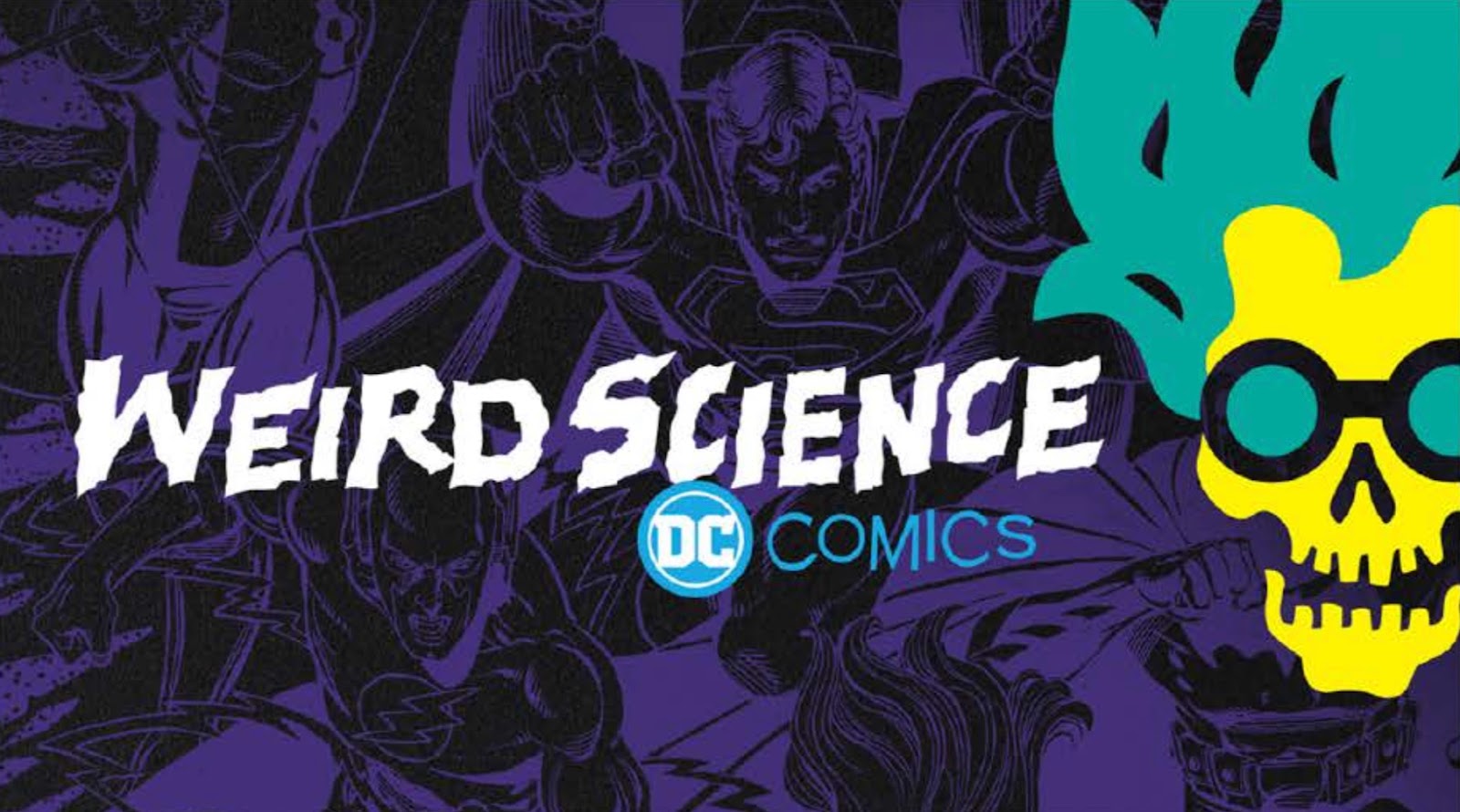The World Is Ready For You... And The Wonders That You Do

Written by: Bryan Hill
Art by: N Steven Harris and Dexter Vines
Colors by: Ross Campbell
Letters by: Simon Bowland
Cover Price: $3.99
Release Date: October 10, 2018
The Wild Storm's first (and only?) spin-off title reaches its conclusion this month. Writer Bryan Hill has moved on to other things (most notably a new Outsiders series for DC and the mouthwatering prospect of a Killmonger series with artist Juan Ferreyra), but what he has accomplished here is impressive nonetheless. What started out as a (too) tightly-structured procedural spy/assassin story featuring darker versions of some of the DC Universe's most iconic characters has become something altogether different. The promising moments of character development we saw in the first few issues have blossomed into something both intriguing and compelling in the series' final half. With crazy Diana Prince about to summon the old gods and break the world in the process, will Cray be able to deal with both her and the alien creature in his head and survive the experience?
There's only one way to find out…
One of Hill's triumphs in this series has been to give us a more twisted, more diabolically Machiavellian John Constantine and it's to him that Michael goes at the start of the issue. The subsequent meeting is violent and fraught, the fate of Homa Shahi, Cray's brief love interest, hanging in the air until it's finally raised by Cray and neatly deflected by Constantine. Cray is commendably cold here, cold enough to pass by an opportunity to avenge Shahi in favor of saving the world. I've mentioned before how Hill has argued that suffering is the key to defining heroism and, boy, has he made Cray suffer here. This restraint may be the most impressive moment of heroism in Cray's journey to date.
Leaving Constantine bloody but still breathing, Cray heads for an Athens bar to chat with the alien in his brain. Leaving aside the visually surreal nature of the conversation, this section marks a significant shift in the relationship between the creature and Cray. There's nothing like an oncoming apocalypse to help get your priorities straight. And this is an important aspect of Cray's character – his pragmatism, his willingness to do unsavory things when absolutely necessary.
This pragmatism receives its ultimate test in the story's finale and Hill pulls no punches in Cray's final confrontation with Prince. The issue ends with a second confrontation with Christine Trelane before Michael touches base with his father in a too-brief human moment and the series ends with a rather nice visual callback to the way it started all those months ago.
On the whole, this is a satisfying wrap up of a series which has examined very closely the character of Michael Cray and leaves him markedly different at its conclusion. Hill's writing is thoughtful and interesting and his characterizations of the title character, the alien entity in his mind, and Constantine are excellent. The final confrontation between Cray and Prince is impressive because it lays bare the themes of the series as well as bringing the ongoing plotline to a close. Sent mad by tragedy (as was Oliver Queen before her in the first two issues), Diana represents a failure of the heroic impulse. Like Oliver, Diana is possessed by a nostalgic desire to recapture and fulfill the promise of the past. For Oliver, his experiences on the island defined him, but he was unable to move past them and was consequently locked in a repetitive cycle of violence; for Diana, the trauma of her father's death locks her into a pattern of behavior that, focused as it is on obeying the injunction of a father long since dead, becomes monomaniacal and almost cataclysmically destructive. It's only Cray who is able to overcome his emotional and physical pain, move forward and act for a greater good, though he himself may not be good in the traditional sense of the word.
The result of all this is the sense that, despite its initial flaws, this series has been about something. Through the 12 issues, we've seen Cray move from a place of vulnerability and being controlled to a place which, despite its lack of security (he tells his father he'll have to leave the West for a while), offers him a greater sense of agency and power. There's a price for that, of course, but then there's a price for everything and that, amongst other things, is one of the key messages of the series.
Some of the flaws I've noted in past issues remain here, particularly in relation to art. That said, Harris' action scenes remain visceral and the climactic battle is well rendered. Arguably, the setup for the climax is a little rushed (I might have expected Diana to have more security for Michael to get through, for example.) and Constantine is perhaps a little too composed when explaining things to Michael after his initial beating. But, really, these are relatively minor issues. This remains a very strong ending to a good series.
Bits and Pieces:
The Michael Cray series ends in a way that manages to feel fresh, exciting and inevitable all at the same time. The limitations of the art notwithstanding, the story is told in a clear, dramatic manner and the issue's final page left this reader at any rate with a very satisfied feeling.
7.9/10






No comments:
Post a Comment